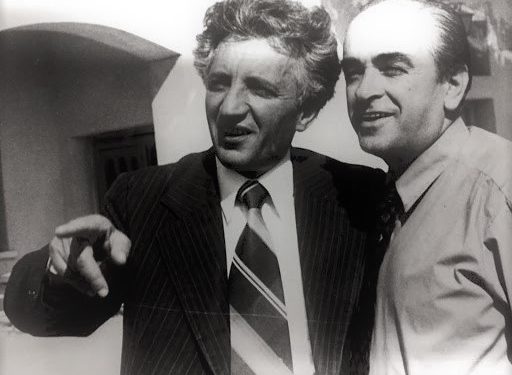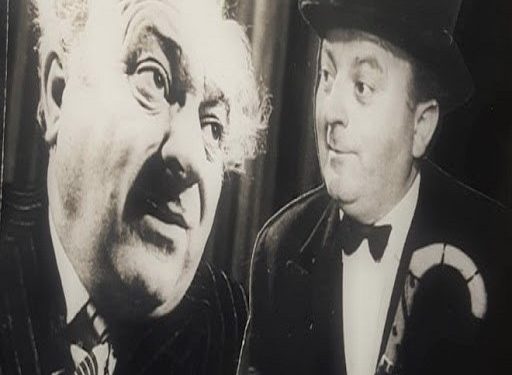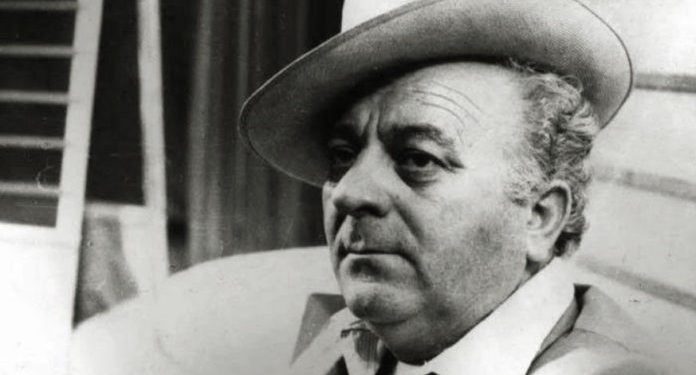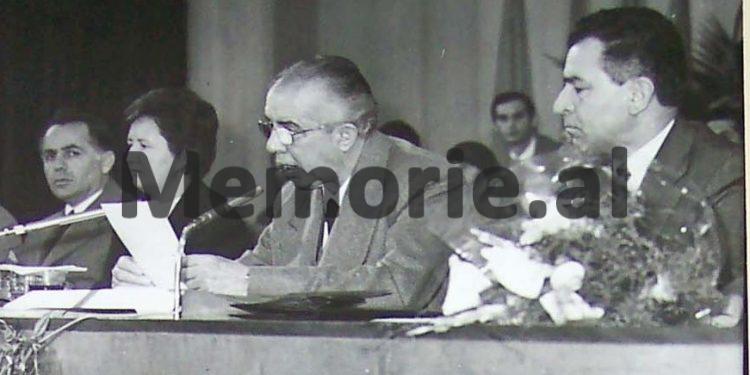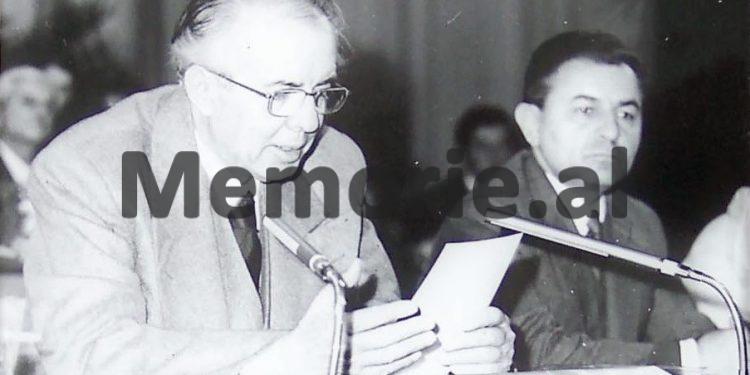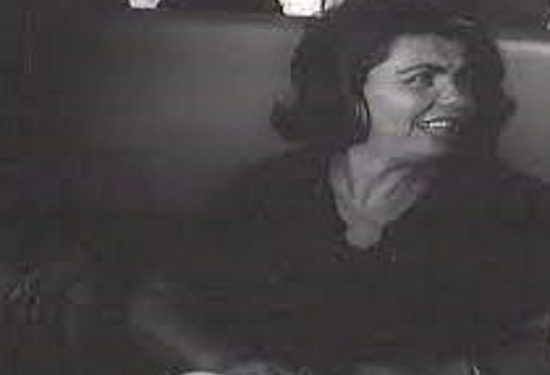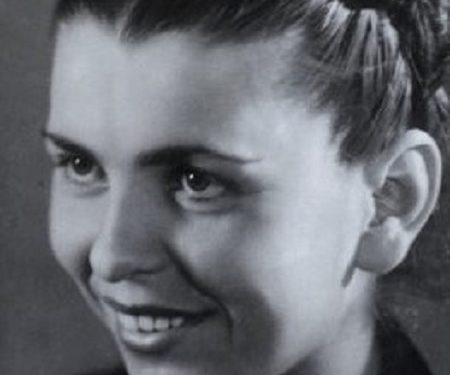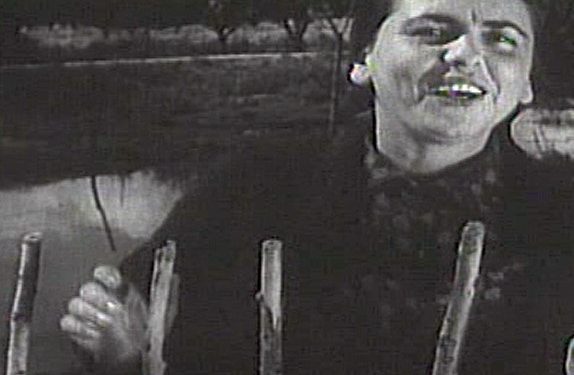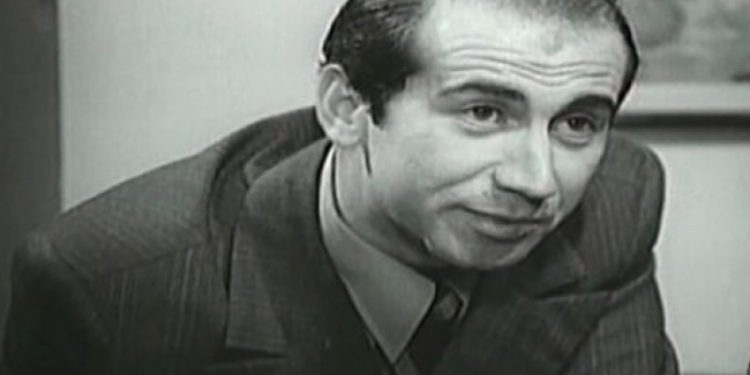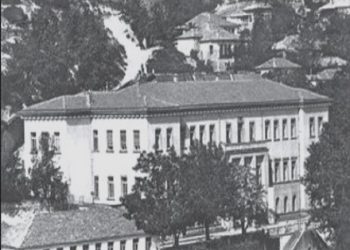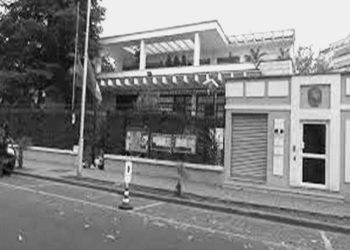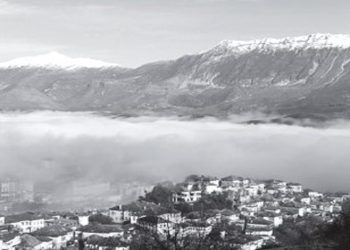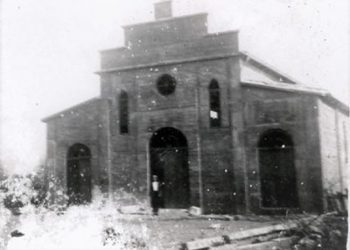Dashnor Kaloçi
The fifth part
Memorie.al publishes some archival documents extracted from the Central State Archive in Tirana (fund of the former Central Committee of the ALP), where there is a record of the meeting of the Secretariat of the Central Committee held on May 25, 1978 , on the topic: “On a situation and on some problems that arise to increase the ideo-artistic level of professional theater and variety”, which was directed by Enver Hoxha, which was also attended by Ramiz Alia, secretary of the Central Committee covering propaganda , art and culture, Pilo Persiteri, candidate of the Politburo and Director of the Tractor Factory, “Enver Hoxha”, Deputy Minister of Education and Culture, Anastas Kondo and President of the League of Writers and Artists of Albania, Dritëro Agolli. The full minutes of that meeting led by Enver Hoxha, where the famous actor and director of the Albanian theater and cinematography, Pirro Manit, the well-known actress of the National Theater, Violeta Manushi, the professional pop actor were also invited and participated. of the city of Shkodra, Tano Banushi, etc.
“Our theater has a great experience in collaboration with actors – playwrights. Whenever this work was done well, there was a harmony between the author and the theater director, always the results were positive. From this warm, concrete cooperation and not in general, we have left or will remain many dignified works in its golden fund of our scene, starting from the first works such as “Our Land”, “Family of fisherman ”,“ Cuca e maleve ”, etc. I mentioned some of these works which are quite serious. This cooperation, especially recently, has become even stronger, more concrete. In our theater we have a lot of staff who do not work in the theater, but deal with writing and are writers. They not only help us with their works, but they also come to the theater, got acquainted with the process of staging, get acquainted with the laws of the stage, which is more than necessary for the author. We trusted our young people with courage, we felt very close to the whole team, the organization, we old directors and there really were results. For example, Dhimitër Pecani, not himself, m who successfully deputy on our stage, but he also went to Fier where he gave a beautiful play for the theater of Fier. In addition, there are a large number of television directors, such as Albert Minga who has emerged from television, the People’s Theater, as well as Vladimir Prifti and Agim Qirjaqi. So we have to trust the “conductor’s stick” of the director, the young boys to come forward and show talents, because our people are very talented”
This is what the well-known theater director Pirro Mani said in his discussion, in one of the meetings of the Secretariat of the Central Committee of the ALP held on May 25, 1978, which was chaired by Enver Hoxha, where they participated also Ramiz Alia, Pilo Peristeri, Anastas Kondo and Dritëro Agolli. In that meeting with the topic: “On a situation and on some problems that arise to increase the ideo-artistic level of the creativity of theater and professional variety”, in addition to Pirro Mani, participated the well-known actress of the People’s Theater, Violeta Manushi of the professional stage of the city of Shkodra, Tano Banushi, etc.
For more than what was spoken and discussed in that meeting by Enver Hoxha, Ramiz Alia, Anastas Kondo and Dritëro Agolli, as well as by the guests: Pirro Mani, Violeta Manushi and Tano Banushi, the archival document in question introduces us with the minutes of that meeting of the Secretariat of the Central Committee of the ALP, which Memorie.al publishes for the first time and in full in some issues of the dossier section.
Continued from the previous issue
Minutes of the meeting of the Secretariat of the Central Committee of the ALP, May 25, 1978
“ON THE SITUATION AND ON SOME PROBLEMS THAT ARISE FOR THE INCREASE OF THE IDEOARTISTIC LEVEL OF THE PROFESSIONAL THEATER AND POETRY CREATIVITY”
COMRADE TANO BANUSHI: Now you are allowing me to express an opinion that I have talked about with my friends, with my amateur colleagues. I do not mean that we should seek privileges for amateurs, I am by no means of this opinion, that the truth is that there are some opinions to treat amateurs as athletes, who work five hours, etc. I do not have this opinion I am saying that a better administration of the aid that the Party gives to amateur artists is needed.
I’m talking about relieving them from the second and third shifts. It is necessary that an amateur, or within an amateur group there are employees who are workers, technicians, there is also an engineer who is active, but these work someone in the first shift, someone in the second shift and in the third, according to the processes of production. But when it comes to the show that the amateur group has to give, it has to be complete with the employees working in all three shifts and if it continues like this, confusions occur. In enterprises are regulated but sometimes even professional organizations need a direction or a decision to encourage this movement.
We have very good examples of amateur artistic movement like in the Wood Factory, in the Wire Factory, but there are also heads of departments that run companies, which are reluctant to allow them, because the participants of the amateur group have a job in that turn and then when the tests are done, one of those who may be even better may be busy. Therefore, I think that more organized help should be provided.
COMRADE ENVER HOXHA: Rightly, rightly so, it’s right, that our economy is not harmed, some talented people can be withdrawn from work in an enterprise, as participants in amateur groups.
COMRADE TANO BANUSHI: There is a group of people in an enterprise and cultural activities, whether rehearsals or performances, will always take place after dinner at the enterprise club.
COMRADE ENVER HOXHA: These issues must be seen with the political eye, because we gain 100 times more by keeping alive the amateur artistic movement in the company that if we keep those two or three people at work, and then prevent them from participating in this movement.
COMRADE TANO BANUSHI: I have another issue: I agree with the material presented by the League of Writers and Artists, but I think that the issue of aid to be given to the stage by government organizations should be looked at better than before. I say this because there are things that are not looked at equally in both pop and theater. By no means do I want to convey that I recommend for the mother to be inactive, but for the mother to be inactive. Maybe this kind of viewing of pop as the easiest genre has remained from the past, but the love of the spectators for the variety is the same as for the theater, because the pops militate just like the theaters. Even from the point of view of staff distribution, practice has shown that on stage they bring weaker staff, even in terms of education. For example, the theater has the best directors everywhere. Differentiations are also made in school treatments.
At the Higher Institute of Arts, priority is given to drama, and in life it happens that when an actor works for a short time in the theater troupe and is brought to the stage, he rightly said: “I am finished for theater”! This is not general, but there have been some cases. All this makes you think that there is a different view of the stage, compared to the theater. I am also saying that I will help the work of the Party in pop music. I have nothing more to say, but once again I thank the Party that has called me to give my opinion in this meeting.
COMRADE ENVER HOXHA: Who wants to discuss?
COMRADE RAMIZ ALIA: I gave up.
COMRADE ENVER HOXHA: Right? Yes I can give you permission to give up, yes…!
COMRADE RAMIZ ALIA: Let us keep in mind what was said here.
COMRADE ENVER HOXHA: The point is that if you do not associate with us, I will have a discussion. Before expressing some thoughts, I would like to express the special satisfaction I feel for the important and valuable problems posed by my friends, from Dritëroi, Violeta Manushi, Pirro Mani, Tano Banushi and Anastas Kondo, for the development of different art genres. Of the scene, which has contributed and is contributing so much to the education of our employees on the path of socialist construction.
I want to make it clear that the discussions made by the comrades we invited should not be considered by the staff of the Central Committee of the Party, those of the Ministry of Education and Culture, the committees of the District Party and the Trade Unions, just as a few simple findings and take the wind.
I think that all that they say and the concrete proposals of the invited friends should be carefully considered and in time one by one, take measures to be implemented and finally give us an information on how the requirements are being implemented. Theirs. The demand for accountability, especially in the arts, needs to be strengthened, as this sector can be considered elusive, so the decisions we make about this sector need to be checked a little more carefully. It seems to me that in general, comrades who spoke nothing superfluous do not ask, their proposals are all reasonable.
So in conclusion, I say that they helped us a lot both with the reports, but especially with the discussions, which were more vivid and more concrete.
In the discussion I have prepared, some generalizations are made, but before I raise the problems I had thought of, you said them, however I also want to say something.
I think we should first pay attention to the moral-political and ideological education of the staff working in all these sectors, a problem that touches you very well. The professional development of artists and when we say artists, we also understand the directors, all the others that include these sectors, where the work that the authors have to do to improve the parts they write, considering the quality, is important.
Our theater is a very important educational tool, which must be understood by big and small. He must express on stage the best virtues of our socialist man, the virtues not in the idealistic and metaphysical sense, but the virtues inherited from the past of the people and born and formed in our socialist society.
These virtues cannot be a dead adornment, if they are one and inseparable from the thoughts, actions, desires, aspirations, work and creativity of man in society and for society. The man with good virtues desires and fights for a good society. This should be our positive hero that our theater and variety shows should present in the performances that prepare this hero; we should build the authors of dramas, comedies, variety shows in the works that write about the stage.
The good man must be built in the book and presented on stage with his simplicity, because in simplicity the good virtues point strongly, why there can be no perfect “hero” in life.
It is life that proves this to us, therefore to present real material and spiritual life as it is in dynamism and development. It should be borne in mind that our positive hero is not completely immune from any debris, but he always dominates the good sides and these good sides are in constant war with the waste and their reminiscences, whether in his consciousness or in the conscience of other people, among whom he lives and fights together with them, for a more cultured life in our socialist society.
The positive hero loves this society and in his thoughts and actions stands out both today’s reality and perspectives. So this character serves as an example in action and on stage and at the same time as a warrior, as a revolutionary and as an educator of others.
These tasks, which should be distinguished in the positive hero, are formed and molded with a proletarian education and morality, formed by the acquisition of our Marxist-Leninist ideology which is the guide of our Labor Party in every action. So the role of theater, pop, comedy and other genres is important, because it has to do with the massive and individual education of our people in general.
But, along with it and equally important is the role of the part that is played, that without parts there can be no theater, there can be no variety and here comes the responsibility of the author. The part reflects a part of life; it reflects an episode that takes place at a certain time, in a simple or complicated environment, in antagonistic and non-antagonistic contradictions, with dramatic, hilarious, comic moments, etc.
All these must be lived by the author, they must be lived with the people, in his bosom, as we said very well in your discussion, friend Violeta Manushi, therefore you must live with the people and think about them, before writing. But Fadil Paçrami continues to write “dramas” in prison, but they are just to put them in a “special” place in the house and not on stage.
Artists perform plays, plays or plays prepared for pop, comedies or other genres should be tasked with becoming and being regarded as professors, as teachers of the public in these cultural institutions. Teachers and professors for every branch or profession are not born without man, but he becomes.
You can become good, you are learning well, you are realizing the importance of the mission or task entrusted to you and you are becoming aware of this great educational role. To master the craft well, you need to know where you will be oriented to learn, to expand your knowledge and to deepen your profession.
For every branch of art, science, culture, there are theories and practices. So it is for artists, there was for them the theory they get in school, but there were also practices that they gain on stage, but especially that great practice that is their close contact with the people.
I am taking a typical example, which I personally call a very valuable piece, which is also played on stage, in theater, but also exists in film. I am talking about the work “Ladies from the city”, In everything good that is related to it, if I have managed to express it above, among others, I have in mind the author Rruzhdi Pulaha, and the prominent actress, Violeta Manushi , also the very talented actor, Pandi Raidhi.
When I watch this movie and watch it often, I feel great pleasure, I live together with these artists, why on screen or on stage, it is real life that comes before us, it is the perfect play of the actors in question, up to it the play of the lips or in the raising of the shoulders by them.
Nothing is artificial in the game that the artists I mentioned above do and interpret the roles of this piece. Every episode there is so well studied, for my mednim, that it is simple, original and true, that it attracts, the emotion, makes you laugh, rejoice and all this gives the spectator a lesson and an education of indelible.
Such is the relaxed, so tangible play of the talented artist, Stavri Shkurti, who personifies the Secretary of the Party so close, so loving, so mature and full of dynamism. “To sew like glue on paper, you told me,” Violeta Manushi tells him in the film in the role of the lady from the city. ”
It is for this reason that the performers of this work call the great artists and its author a writer of great talent. I took just one example, why we have a lot of talented playwrights and romance writers, we also have comedy writers and pop stars, not least, we have other talented actors currently in large numbers. /Memorie.al
Continues in the next issue




